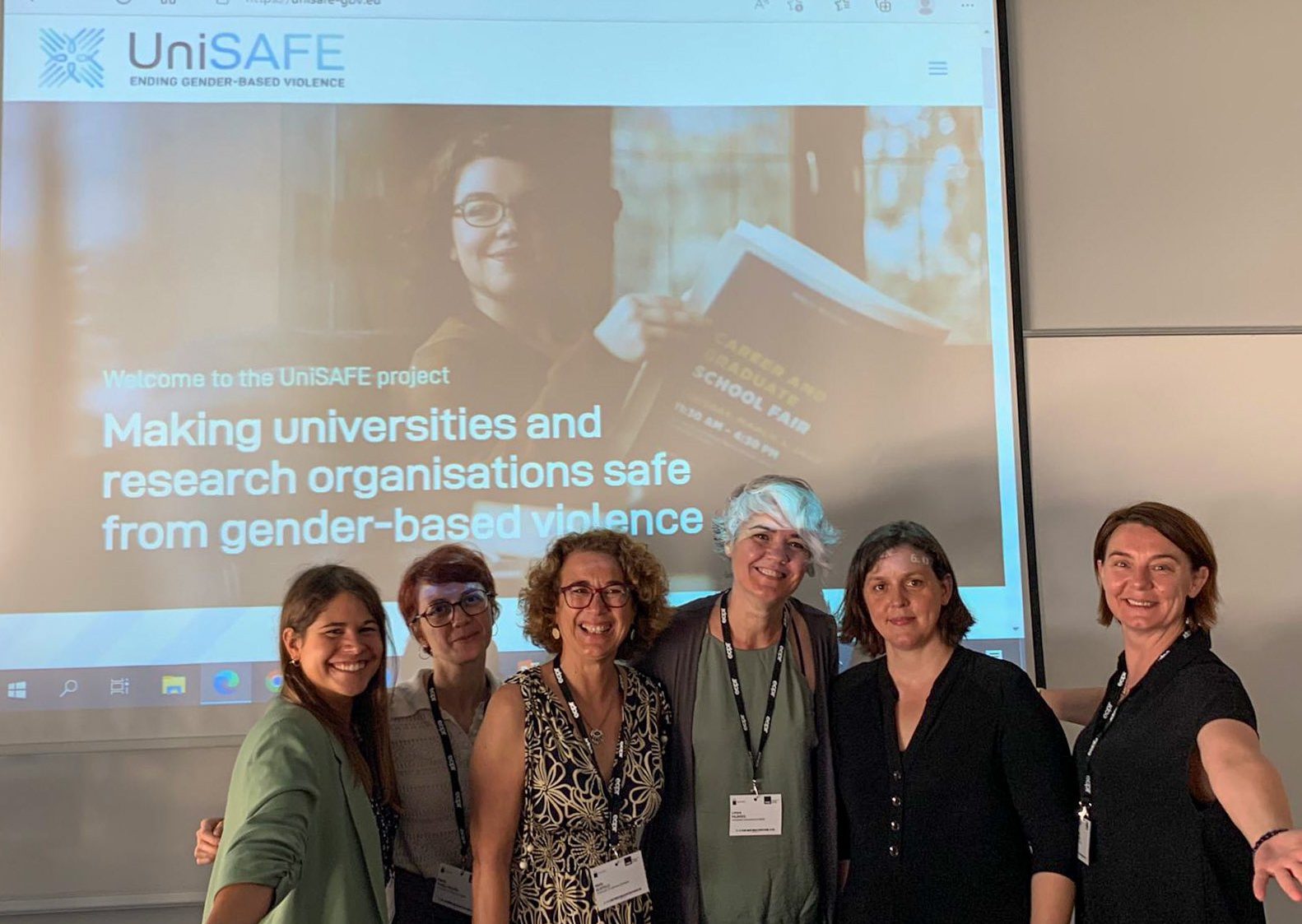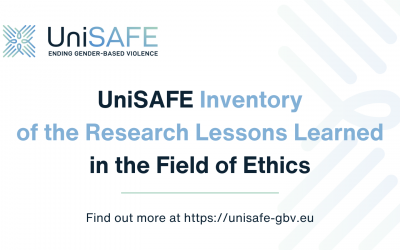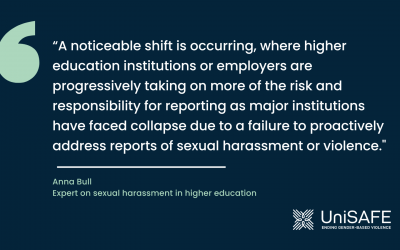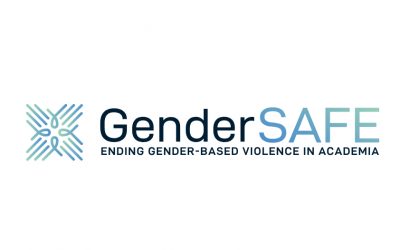On Wednesday 6 July 2022 the UniSAFE project was represented at the European Conference on Politics and Gender in Ljubljana. The flagship conference of the ECPR Standing Group on Gender and Politics offers a global platform for exchange around how understanding gender is key to understanding politics, and where diversity and plurality in analytical perspectives and methodologies are enhanced.
UniSAFE presented three out of five papers at the Learning from research on gender-based violence in higher education and research environments in different contexts panel:
- A case study methodology for analysing the implementation of Research Performing Organisations institutional responses to Gender Based Violence
María Bustelo, Lorena Pajares and Beatriz Ranea Triviño (Universidad Complutense de Madrid)
- Measures of Gender-based Violence Under Revision: A Mapping of Existing Measures of Gender-based Violence, its Determinants and Consequences in Higher Education and Research Environments
Claudia Schredl, Anke Lipinsky (GESIS Leibniz-Institute for the Social Sciences) and Anne Laure Humbert (Oxford Brookes University)
- Measuring gender-based violence in context: considerations for the UniSAFE project
Anne Laure Humbert (Oxford Brookes University), Sofia Strid (University of Örebro) and Claudia Schredl (GESIS Leibniz-Institute for the Social Sciences)

UniSAFE partners Claudia Schredl, Beatriz Ranea Triviño, María Bustelo, Lorena Pajares, Anne Laure Humbert and Sofia Strid at ECPG 2022.
The panel discussed gender-based violence in higher education and research institutions with a focus on learning from conceptual, theoretical and empirical work conducted in different contexts.
Gender-based violence is an issue faced by students and staff at all levels and in all disciplines in higher education and research institutions. In this context, the approach of UniSAFE is particularly relevant as it defines gender-based violence from a wide perspective, giving voice to all experiences of gender-based violence including sexual harassment and digital violence.
After mapping and analysing national and institutional policies addressing gender-based violence, the field phase of the UniSAFE survey – the quantitative part of UniSAFE’s research ended in May 2022. In total, over 35,000 responses were collected across 15 European Member States, and will feed a multi-level analysis of the integrated dataset, available in December 2022.



